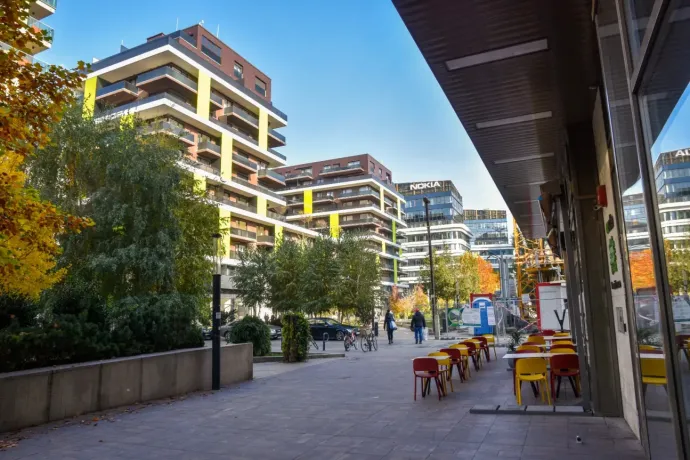Chinese buying apartments in Hungary more and more as investment

Following its residency bond scheme set up several years ago, the Hungarian government is launching a new scheme for non-EU and non-EEA citizens, which will grant them a ten-year residence permit in exchange for a donation to a property or a trust, as well as for purchasing real estate.
The new Hungarian "guest investor" scheme will come into force on 1 July, after the local and European elections, apropos of which we asked the analysts of real estate brokers of Ingatlan.com and Duna House to help us find out where the real estate purchases of non-EU citizens currently stand, and what trends are visible, especially among the two groups which are the biggest buyers: Chinese and Russian citizens.
Each spring, the Prime Minister's Office publishes the number of non-EU citizens who have requested permission to buy property in Hungary. According to this,
In 2023, the number of such applications from foreigners increased by 18 percent compared to 2022.
Last year, 2,981 non-EU nationals submitted applications, which is the highest number since the Covid-19 pandemic, but is still below that of the years before (nearly 3,300 applications in 2018 and more than 3,500 in 2019).
In terms of actual completed transactions, as in previous years, Chinese and Russian nationals were the most numerous buyers in 2023, with Chinese nationals purchasing 647 properties and Russians 223.
Fewer Russian buyers since the war in Ukraine broke out
Recent figures show a narrowing gap between the two nations, with the Chinese buying 17 percent fewer properties last year than in 2022, and the Russians 16 percent more. For the latter, properties in District VI were the most sought-after, while for the Chinese, Districts XIII and X attracted around a quarter of purchases.
In the experience of Károly Benedikt, head of PR and analysis at Duna House, the high level of activity seen in the two to three years before the Russian invasion of Ukraine has very much subsided, with the interest of Russian buyers currently only being around 10 percent of what it was then, according to experts at their agency. This is partly explained by the sanctions and restrictions affecting Russians: while it is easier for Russian citizens who already have a Hungarian residency permit or are contracting on behalf of a company to buy a property, they still need to obtain a permit from the government to be able to do so.
The financial aspect of purchasing is not easy either, as at the beginning of the war, the bank accounts of Russians who had been living in Hungary for several years were closed. Selling a property someone already owns is not easy for them either, and obtaining Hungarian property as private individuals is almost impossible. Russians who still manage to acquire property and have the necessary capital are typically buying luxury properties for investment purposes, and usually invest in other countries as well.
According to the figures from Duna House, the proportion of Chinese buyers looking to buy a home has also dropped, with most of them also buying for investment purposes.
They are typically buying homes with one or two bedrooms, usually in the range of HUF 80-100 million (207,000 – 256,000 euros). According to Duna House, foreigners buying property tend to rely on intermediaries, and their network now includes a number of Russian and Chinese-speaking experts, with key documents available in Russian and Chinese as well as English and German.
Thousands of Russians browsing the market
The statistics Ingatlan.com shared with our team confirm that Russians are less likely to actually make a purchase. The company has published data on the proportion of Russian and Chinese prospective buyers who have enquired with them in the last two years. According to this data, Russian buyers are much more active than the Chinese: in 2022, 504 Chinese and 2242 Russian citizens inquired with them, and in 2023, there were 1342 Chinese and 3842 Russians interested in purchasing property in Hungary. As for 2024, the company has only released final data for the month of January, but this also indicates Russian dominance: for every 851 inquiries from Russian citizens, there were only 66 from potential Chinese buyers.
In 2022, after Chinese and Russians, Israelis (182) and Ukrainians (166) were the most frequent buyers, followed by citizens of the UK (132) and Turkey (75). For some reason, in 2023, the Prime Minister's Office decided to add the Vietnamese (who were previously in a category called "others") to the chart, which is only available as a PDF document. The latest figures show that a total of 340 Vietnamese, 154 Ukrainian, 108 Israeli, and 108 Turkish citizens purchased an apartment or a house in Hungary last year.
For more quick, accurate and impartial news from and about Hungary, subscribe to the Telex English newsletter!